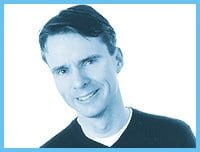Writing this column, I felt more than a little bit hypocritical. Here I was writing about… well, you’ll see. And at the same time I was flipping back and forth to free Internet porn.
It all started with Sex, Drugs And Middle Age, a flashy two-hour doc that aired Nov 10 on CBC. A look at our search for the “chemical fountain of youth,” it was a revealing look at the marketing of estrogen, testosterone, Viagra and the 100-odd drugs now being developed to combat so-called “female sexual dysfunction.” The success of these drugs depends in part on our new-fangled belief that we have to look and act young forever.
First it was women who bore the brunt of this interesting idea. Then, beginning in the 1960s, it was men.
The analysis here was fairly slight, relying less on sociological shifts than media events – Burt Reynold’s groundbreaking appearance as a Cosmopolitan centre-fold in 1972, John Travolta’s butt-shaking turn in Saturday Night Fever and Calvin Klein’s wildy erotic underwear ads, circa 1982.
But it did a terrific job on the way drug companies exploit cultural anxieties to ensure massive profits.
What it failed to nail was the drive behind the drive. I mean, if people are trying to look younger it’s not because they want to giggle like schoolgirls. In our society, youth equals sex.
And then the question becomes, how did we all get so hung up on sex?
“Huh?” you might say in your eloquent way, “People like sex, they go for it, what’s the problem?” But I doubt there’s ever been a time in the history of the world when so many people have not only enjoyed sex but felt compelled to have it, on pain of social ostracism or psychic dysfunction. These days if you’re not having sex, or at least mourning its absence, you’re considered weird, repressed or a very real candidate for a major mental meltdown. From a pleasant possibility, sex has turned into a mandatory prescription for happiness.
Sex is to our society what spirituality was to the middle ages – the ubiquitous and informing value of our time.
No wonder barebacking is back. When you treat sex as the premier road to happiness, contentment and union with the divine – or as close as we mangy, materialistic mortals may come – then everything else pales in comparison, including your life and your health.
At first glance, gay men are the most obvious knights of the new grail. The pressure to get laid reaches a peak around Pride Day, but circulates all year round. Sex is to gay men as the weather is to straights – it’s the basic currency of our conversation. If all else fails, you can always talk about sex. (And lord help you if you don’t have a sex story to retell; you’ll be onto mortgage rates before you know it.)
But queers are hardly the only people squirreling around after sex. Maclean’s recently did a cover story on the huge number of young straights searching for sex on the Internet, and when Maclean’s give a trend cover treatment you know it’s already reached the prairies.
Gay lib has always gone to bat for a guilt-free enjoyment of the body, but bigger forces are at play here. Capitalism, urbanization and various other elements of modernity have all conspired to dissolve the traditional ties that bind – class, neighbourhood, the extended family – and exalt the more ephemeral lures of sex, for both straight and queer.
You have only to look at the covers of mainstream American magazines, with their endless articles on how to have more sex, better sex and sex in more terrifyingly tortured positions, to realize that sex has undergone a conceptual shift, from sin to all-encompassing solution, from optional pleasure to iron-clad need, on the order of air and water.
The implications for both private conduct and public policy are vast. “What we think of as our needs,” say the British psychoanalyst Adam Phillips, “are intimately bound up with what we think of as our options, our opportunities and our ideals.”
If sex is the ideal, then some things start to seem inevitable. Like safe sex or gay marriage. If you’re going to base most of your key relationships around something as fragile and ephemeral as sexual attraction, you’d better prop it up with something more lasting, like a marriage licence.
If you’re going to idealize sex as the primary form of cultural communion, then the only acceptable way to fight an STD like HIV is with some sort of containment strategy, like safe sex. You certainly can’t ask people to reduce or eliminate their sexual intake. They’d wither up and die without it. There’s no evidence for that, of course. But that’s the current mythology.
And like mythology, these ideas breed ferociously, infect everything and resist analysis. Love them or loathe them, there’s very little you can do about them (even if you wanted to), except be aware of their effects. Sex is no longer simply a private pleasure; it’s an article of public policy.
Okay, now I think I’ll go back to being hypocritical.

 Why you can trust Xtra
Why you can trust Xtra


